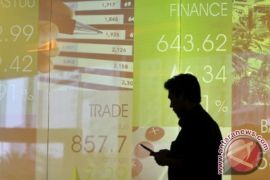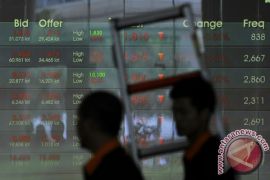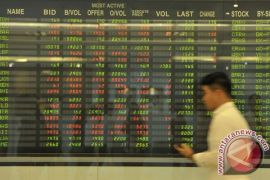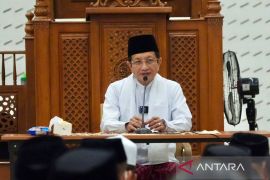"The IHSG and rupiah are expected to be positive. Moreover, the positive sentiment has begun to defeat the negative sentiment owing to domestic issues and global pressure," Wafi noted in a statement received by Antara in Jakarta on Thursday.
The Central Statistics Agency (BPS) had recorded the economy to grow at 4.97 percent in the fourth quarter of 2019, so the gross domestic product in 2019 was recorded at 5.02 percent, below the state budget target of 5.3 percent.
Not only Indonesia but also neighboring countries witnessed a decline in economic growth.
Until the third quarter of 2019, Malaysia posted an economic growth of 4.4 percent, lower than the previous quarter's achievement of 4.9 percent. Singapore recorded 3.1 percent in 2018 and 0.7 percent in 2019, the lowest growth since 2009.
Thailand also grew by 2.4 percent in the third quarter, thereby leading to the government reducing its economic growth forecast to 2.6 percent in 2019, from the earlier estimate of 2.7-3.2 percent. The Philippines grew by 5.9 percent for the whole of last year, the achievement being below the target set by the government of some six to 6.5 percent for 2019.
"Economic growth was in line with market expectations, so there was no excessive reaction of the market. Investors, who viewed this achievement as quite positive as compared to other countries in Southeast Asia, went bargain-hunting, though geopolitics continued to negatively impact consumer sentiment," Wafi stated.
Foreign investors' buying action was balanced by a wait-and-see approach to the action of local investors, who were still focused on domestic issues in the financial markets and were awaiting the 2019 financial statements of several issuers that would still be out.
BI estimated that in future, the economy will be supported by a hike in exports and household consumption, followed by growth in investment after the government builds several infrastructure and issues the Omnibus Law.
The government had set an estimated economic growth of 5.3 percent in the 2020 state budget.
Related news: Indonesia's registered economic growth of 5.02 percent in 2019: BPS
Related news: National economic growth momentum remains strong
EDITED BY INE
Translator: Citro Atmoko, Azis Kurmala
Editor: Fardah Assegaf
Copyright © ANTARA 2020










